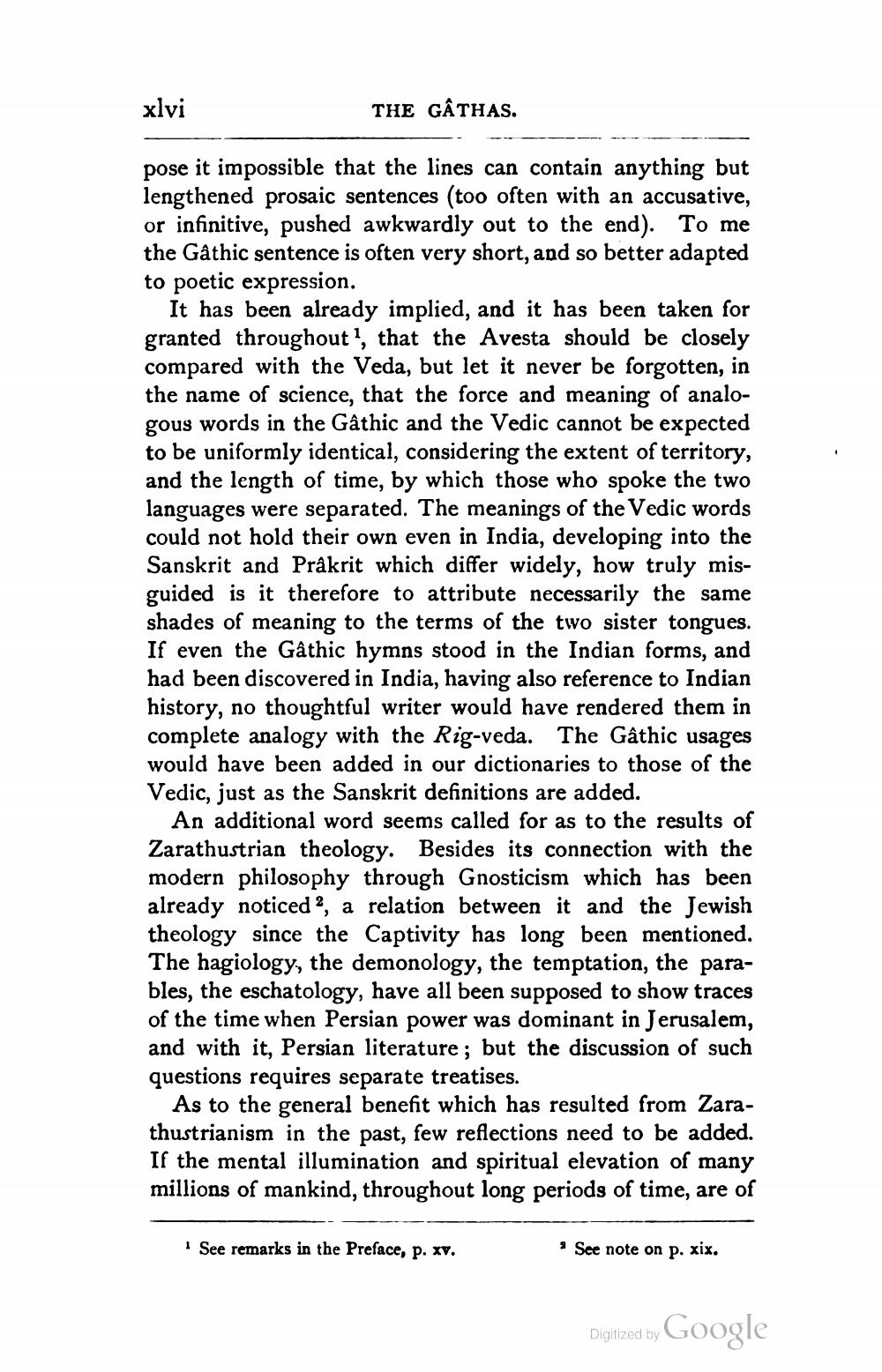________________
xlvi
THE GÂTHAS.
pose it impossible that the lines can contain anything but lengthened prosaic sentences (too often with an accusative, or infinitive, pushed awkwardly out to the end). To me the Gâthic sentence is often very short, and so better adapted to poetic expression.
It has been already implied, and it has been taken for granted throughout, that the Avesta should be closely compared with the Veda, but let it never be forgotten, in the name of science, that the force and meaning of analogous words in the Gathic and the Vedic cannot be expected to be uniformly identical, considering the extent of territory, and the length of time, by which those who spoke the two languages were separated. The meanings of the Vedic words could not hold their own even in India, developing into the Sanskrit and Prâkrit which differ widely, how truly misguided is it therefore to attribute necessarily the same shades of meaning to the terms of the two sister tongues. If even the Gåthic hymns stood in the Indian forms, and had been discovered in India, having also reference to Indian history, no thoughtful writer would have rendered them in complete analogy with the Rig-veda. The Gâthic usages would have been added in our dictionaries to those of the Vedic, just as the Sanskrit definitions are added.
An additional word seems called for as to the results of Zarathustrian theology. Besides its connection with the modern philosophy through Gnosticism which has been already noticed?, a relation between it and the Jewish theology since the Captivity has long been mentioned. The hagiology, the demonology, the temptation, the parables, the eschatology, have all been supposed to show traces of the time when Persian power was dominant in Jerusalem, and with it, Persian literature ; but the discussion of such questions requires separate treatises.
As to the general benefit which has resulted from Zarathustrianism in the past, few reflections need to be added. If the mental illumination and spiritual elevation of many millions of mankind, throughout long periods of time, are of
See remarks in the Preface, p. xv.
See note on p. xix.
Digitized by Google




